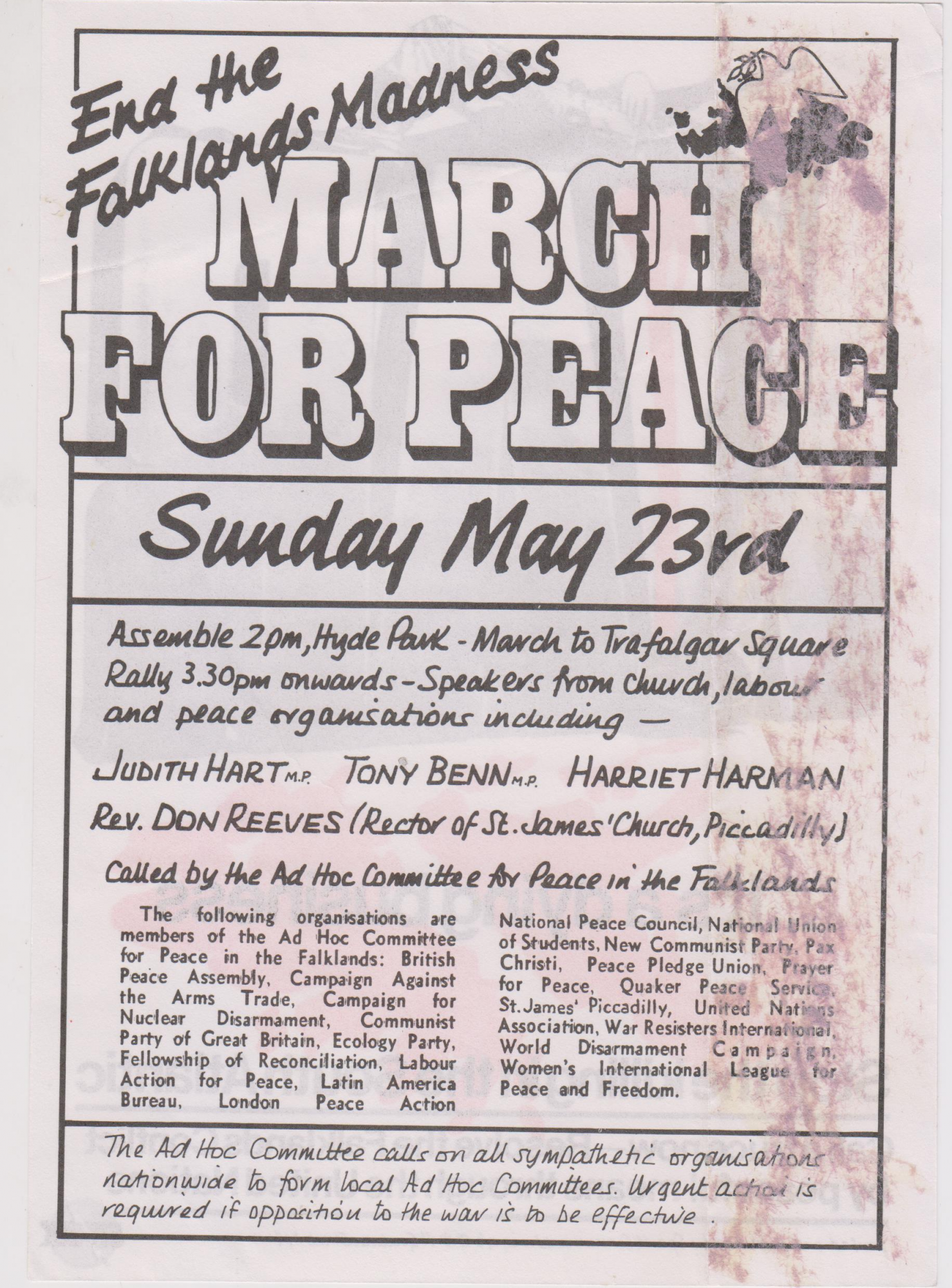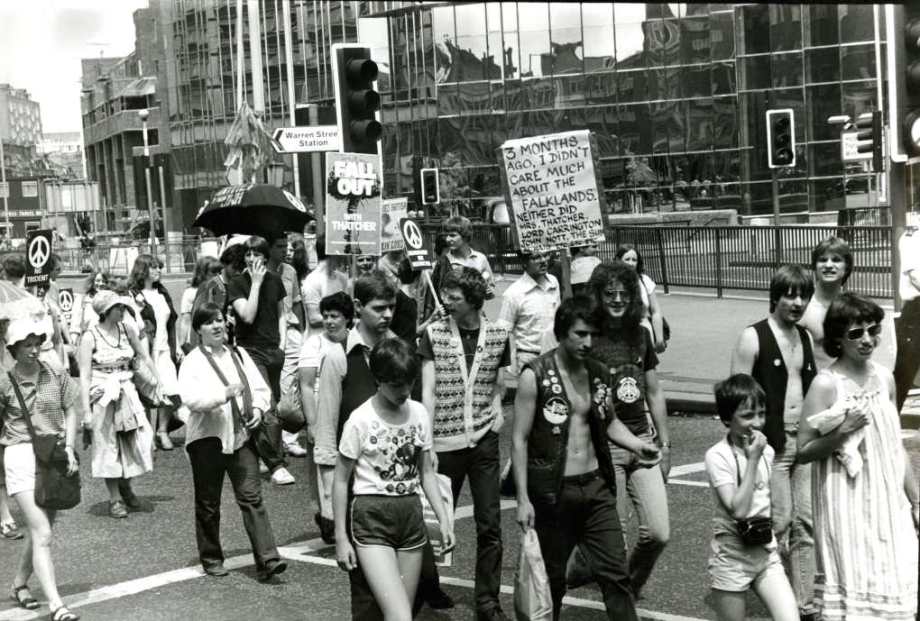"The ultimate struggle is not between the British and Argentinian forces, but between those forces and those of us in both countries trying to subvert them." - Peace News, 14 May 1982
The Falklands War began on 2 April 1982, when Argentinian troops invaded the Falkland Islands. There followed a war between Argentina and the UK in which more than 900 people lost their lives.
During the Falklands War, peace activists around the world challenged the UK and Argentinian governments and called for negotiated solutions.
In the UK, the Peace Pledge Union (PPU) condemned the Argentinian invasion as well as all attempts to solve the crisis through armed force. The PPU liaised with peace campaigners in Argentina and around the world through War Resisters’ International. In the UK, the PPU worked with other anti-war groups through the Ad Hoc Committee for Peace in the Falklands.
Falklands War: The realities
-
At least 907 people were killed in the Falklands War: 3 civilian Falklanders, 255 British troops and 649 Argentinians.
 Both the British and Argentinian governments missed several opportunities for a negotiated settlement, despite attempts by Peru and the USA to mediate. In a leaked recording, US President Ronald Reagan was heard to say “Maggie wants a skirmish” (in reference to the UK Prime Minister Margaret Thatcher).
Both the British and Argentinian governments missed several opportunities for a negotiated settlement, despite attempts by Peru and the USA to mediate. In a leaked recording, US President Ronald Reagan was heard to say “Maggie wants a skirmish” (in reference to the UK Prime Minister Margaret Thatcher). - Despite Thatcher’s talk of protecting the Falklanders’ sovereignty, the UK government had been preparing to compromise with Argentina over the future of the islands in discussions held in the previous years. Falklanders were denied British nationality when the Nationality Act was passed in 1980.
-
The UK government had been authorising weapons sales to the Argentinian regime a matter of months before the war began. Argentina had bought weapons made in the UK by British Aerospace (now BAE Systems).
-
The governments of both Argentina and the UK used the war to distract attention from domestic problems. Leopoldo Galtieri of Argentina launched the invasion shortly before a planned general strike in his country, while Margaret Thatcher’s popularity increased during the war despite mass unemployment in the UK.
Falklands War: The resistance
-
A significant minority of the British public opposed the war. Shortly after the war had finished, when the government was whipping up nationalistic fervour amidst talk of “victory”, a poll for the The Economist found that 22% of UK adults still believed the war to have been wrong.
-
There were peace demonstrations, protests and vigils throughout the war. There were simultaneous protests in at least thirty towns and cities on 1 May, when the Peace Pledge Union called a Countrywide Day of Protest and Resistance, involving a mixture of lawful demonstrations and nonviolent direct action.
-
Between 7,000 and 10,000 people marched in London against the war on 23 May 1982. About 250,000 marched against nuclear weapons on 6 June,with opposition to the Falklands War being incorporated as part of their message.

-
Creative means of nonviolent protest included occupations of naval recruitment centres in Sheffield and Holborn, day-long fasts in Welsh cities and the pouring of fake blood on the steps of the Ministry of Defence. During the Victory Parade in London, there was an attempt to block the march by sitting across the road.
-
The police carried out at least 118 arrests of people campaigning against the Falklands War, according to information collected at the time by the Anti-Falklands War Support Network. Some of these people were engaged in nonviolent direct action, while others were simply handing out leaflets but were accused of “breach of the peace”. In reality, they were the people trying to build peace.





